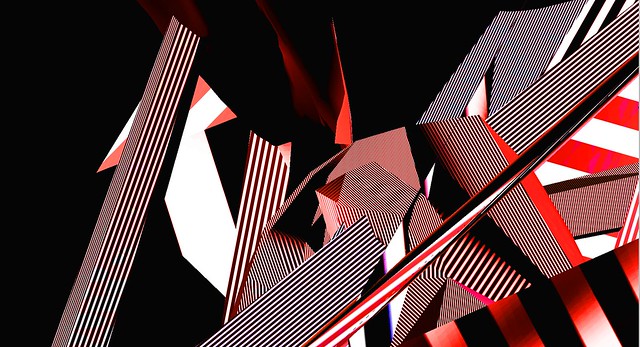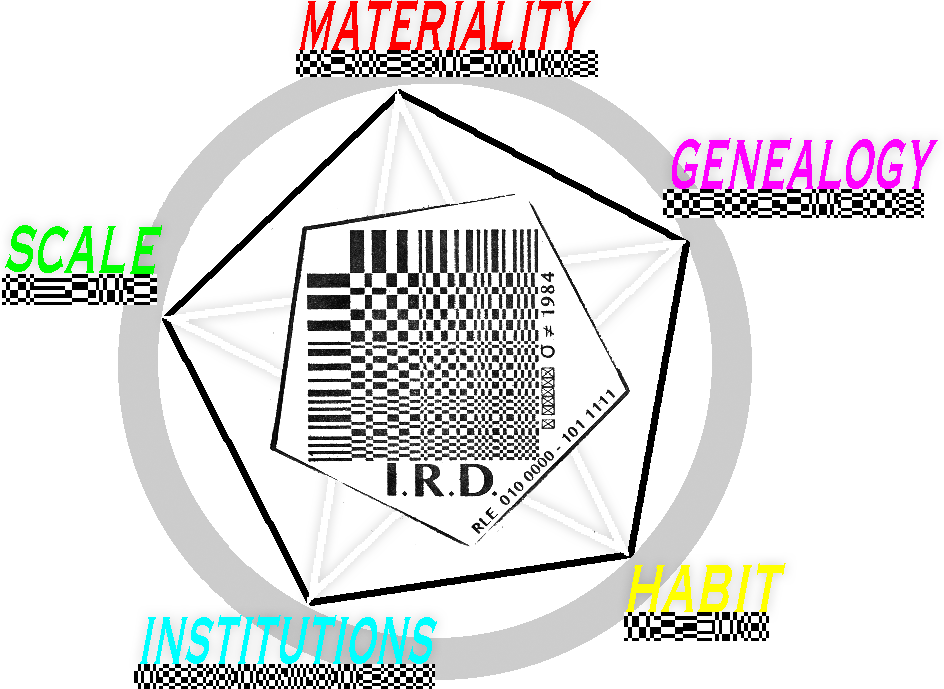__ ___For years now, I visit the Sonic Acts festival.
I safe the dates even if I have other offers myself - because every year I visit, I am overwhelmed by inspiration and the knowledge I would never find otherwise. Sonic Acts festival offers its visitors a chance to navigate (new) cross-disciplinary audiovisual experiences and excels at curating critical experiences that reflect contextualize each other (here I mean critical in the sense that it challenged and changed the status quo of my perception).
Every year I hear about people discovering a new set of eyelids or ear drums being popped and suddenly their senses receive an extra layer of reality. Which is a beautiful experience, but as a writer this has also brought me into trouble; one year I collected so much footage and notes that i got stuck into some kind of state of data-obese information retention, while the next year I was experiencing so much that I forgot/could not write anymore. This has, to be honest not only been a problem for Sonic Acts, but also for Transmediale and GLI.TC/H...
__ ___In its 2013 edition, Sonic Acts celebrated "the deeply rooted human desire to occupy ourselves with things we don't know" under the name "the Dark Universe". The festival invited artists, theorists and visitors to explore the boundaries of knowledge by offering sensible exploration, researching the known and unknown limits of perception.
This year I was very excited to be asked to help out with the festival; i was asked to facilitate an intense Critical Writing Workshop (lasting the whole festival long). This is a very challenging task. Because first of all: what does 'critical writing' mean? In my glitch theory I describe the term 'critical' two-fold:
"on the one hand, 'critical' refers to an analytical state; a ruined, unwanted, unrecognized, accidental and horrendous moment. This transforms the way the consumer perceives its normal operation (every accident transforms the normal) and registers the passing of a tipping point after which it is possible for the medium to be critically revealed at greater depth. On the other hand, these aesthetics critique the medium itself, as a genre, inter- face and expectation. They radically challenge the technological, social or ideological constructedness of all media cultural formations while producing a theory of reflection."
But in terms of critical writing, i think the term 'critical' has a slightly different connotation. It does _NOT_ mean negative writing.
So how can a critical writing workshop help writers on their critical journey into a Dark Universe? _______
_______________________________________
Together with Annette Wolfsberger and Ruth Timmermans I brought together a group of critical writing 'experts'; Allessandro Ludovico, (director of Neural, the printed new media magazine based in IT), Nick Cain (writer for The Wire magazine for underground and non-mainstream musics, UK), and Ge Huismans and Dimitri Vossen (Director and chef of the platform for new music and culture Gonzo Circus, Be/NL). We invited them to present their personal strategies for new media art and music journalism. They also stayed for the whole festival to give the bloggers critical feedback on their festival writing.
It was our role to support the writers as much as possible through their journey of navigating the festival experience, while writing the unsensible into something imaginable and the indescribable describable.
Things I can share about critical writing / things I learned during the workshop:
First of all, I tried to explain what critical writing is to me.
To me, critical writing is a form of writing that offers more than just documentation; it is also about change - for instance about changing perspectives. I believe that critical writing has everything to do with choosing a point of view. Sharing insight to determine a position towards a particular subject or work of art.
Critical writing is about making a decision to see, judge and expand something a certain way. It can be about breaking a work open and giving new reflections on it, guide the reader through one chosen path of perspective - and finally to expand perception of the work._______________________________________
Secondly, we described the different applications and forms of critical writing; what makes for a good review, interview, documentation, art-historical or theoretical description of a particular work; what do these different reasons for writing demand of the critical writer? _____________
Besides this we also described some of the particularities for publishing on the platforms the critical writing experts have been publishing for (a huge music magazine, a cultural platform and a theoretical niche magazine).
The results of the Critical Writing workshop can be read here
▇ ▇ ▇




No comments:
Post a Comment